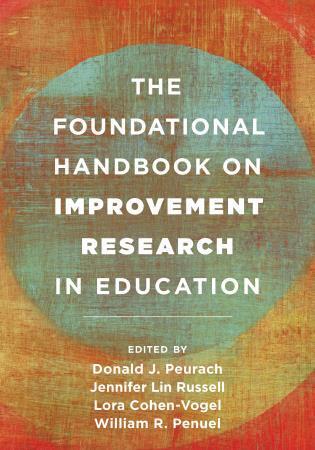-
Title
-
Critical Perspectives on the Contexts of Improvement Research in Education
-
Alternate name
-
Chapter 11
-
Abstract/Description
-
Recent protests and national conversations about racial injustice have significant implications for education research, policy, and practice. Researchers have been called upon to rethink their approaches to studying race and racism in education. Scholarship has challenged traditional modes of inquiry that have framed students of color as having a deficit (Milner, 2015), devalued the importance of urban education (Warren & Vanzent Chambers, 2020), and failed to cite contributions from diverse faculty backgrounds (Madyun et al., 2013; Childs & Johnson, 2018). Our review of improvement research in education argues that deeper engagement with critical perspectives, methodologies, epistemologies, and frameworks is necessary to engage historically marginalized and disempowered people as active collaborators in improvement processes and policy/program implementation. We draw on examples of scholars of improvement research who have taken up critical approaches, as well as scholars in the broader field of education, specifically those studying education policy and organizations. Improvement research should involve an analytical process that goes beyond understanding what or how change occurs and reveals how improvement affects (and is affected by) race, gender, structural inequality, power, systems, and democratic control in classrooms, schools, and districts.
In the sections that follow, we posit from the research literature a model of critical improvement research in education that is inclusive and collaborative among diverse stakeholders—one that interrogates issues of race, class, gender, and power in efforts to understand the contextual factors that can impede sustainable change. We demonstrate how the field of improvement research can begin to unpack the contingent and situated nature of educational improvement (Honig, 2009), drawing on examples from within the field (e.g., community-based design research [Bang et al., 2016]) and the critical learning sciences (Philip & Gupta, 2020) and from critical policy analysis (Young & Diem, 2017, 2018) while arguing that the field as a whole must engage more deeply with scholarship examining race, class, and gender as it relates to practitioners, students, and researchers.
-
[Quoted from p. 242]
-
Date
-
2022
-
Editor
-
Peurach, Donald J.
-
Russell, Jennifer Lin
-
Cohen-Vogel, Lora
-
Penuel, William R.
-
Pages
-
241-261
-
Publisher
-
Rowman & Littlefield Publishers
-
IRE Approach/Concept
-
Continuous Improvement
-
Improvement Science
-
Organizational Change
-
Organizational Theory
-
Equity
-
Justice
-
Neoliberalism
-
Education Reform
-
Critical Policy Analysis
-
Intermediary Organization
-
Racial Justice
-
Critical Race Theory
-
Open access/full-text available
-
en
No
-
ISBN
-
978-1-5381-5234-8
-
Citation
-
Jabbar, H., & Childs, J. (2022). Critical Perspectives on the Contexts of Improvement Research in Education. In D. J. Peurach, J. L. Russell, L. Cohen-Vogel, & W. R. Penuel (Eds.), The Foundational Handbook on Improvement Research in Education (pp. 241-261). Rowman & Littlefield Publishers. https://rowman.com/ISBN/9781538152348/The-Foundational-Handbook-on-Improvement-Research-in-Education




Comments
No comment yet! Be the first to add one!